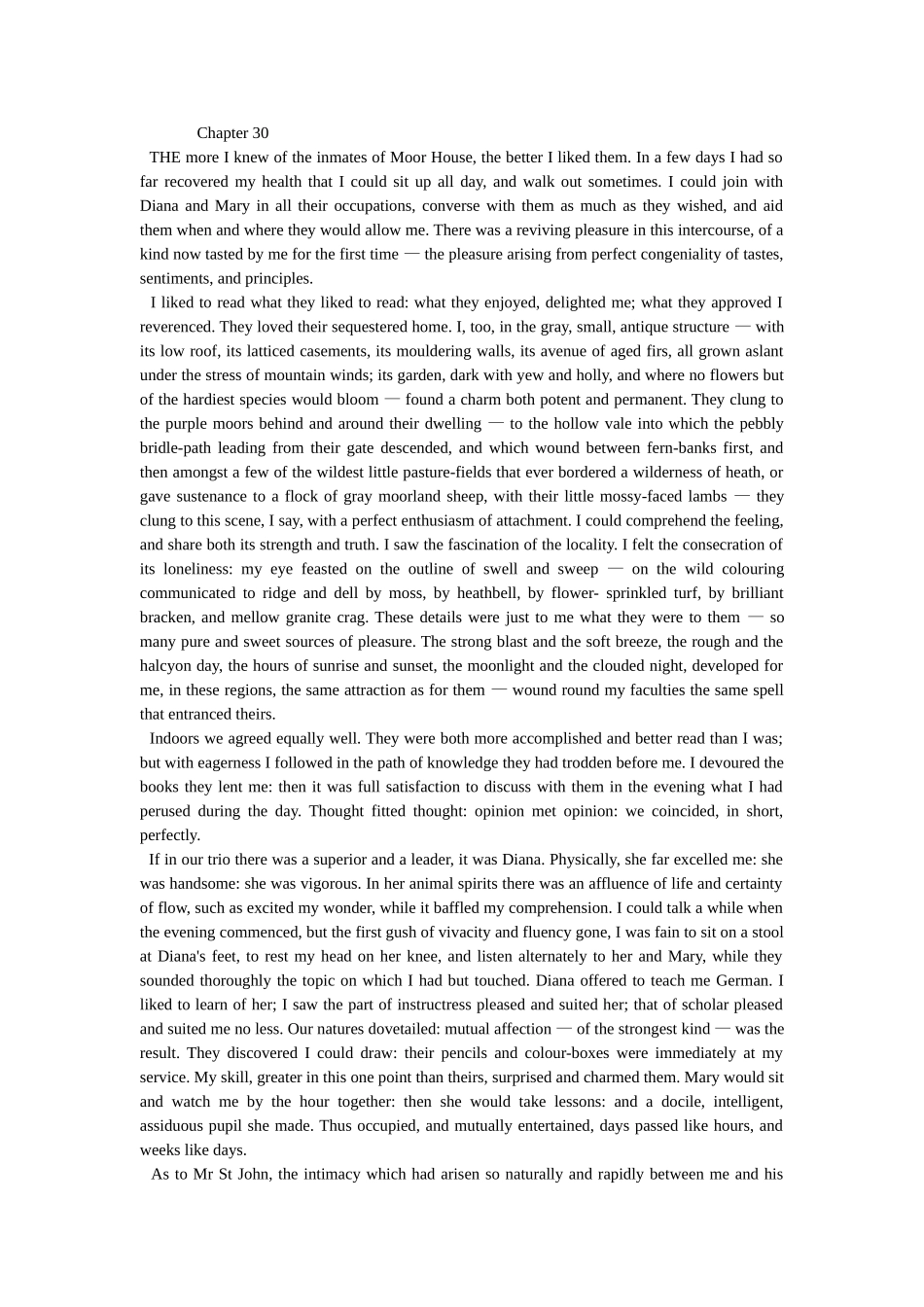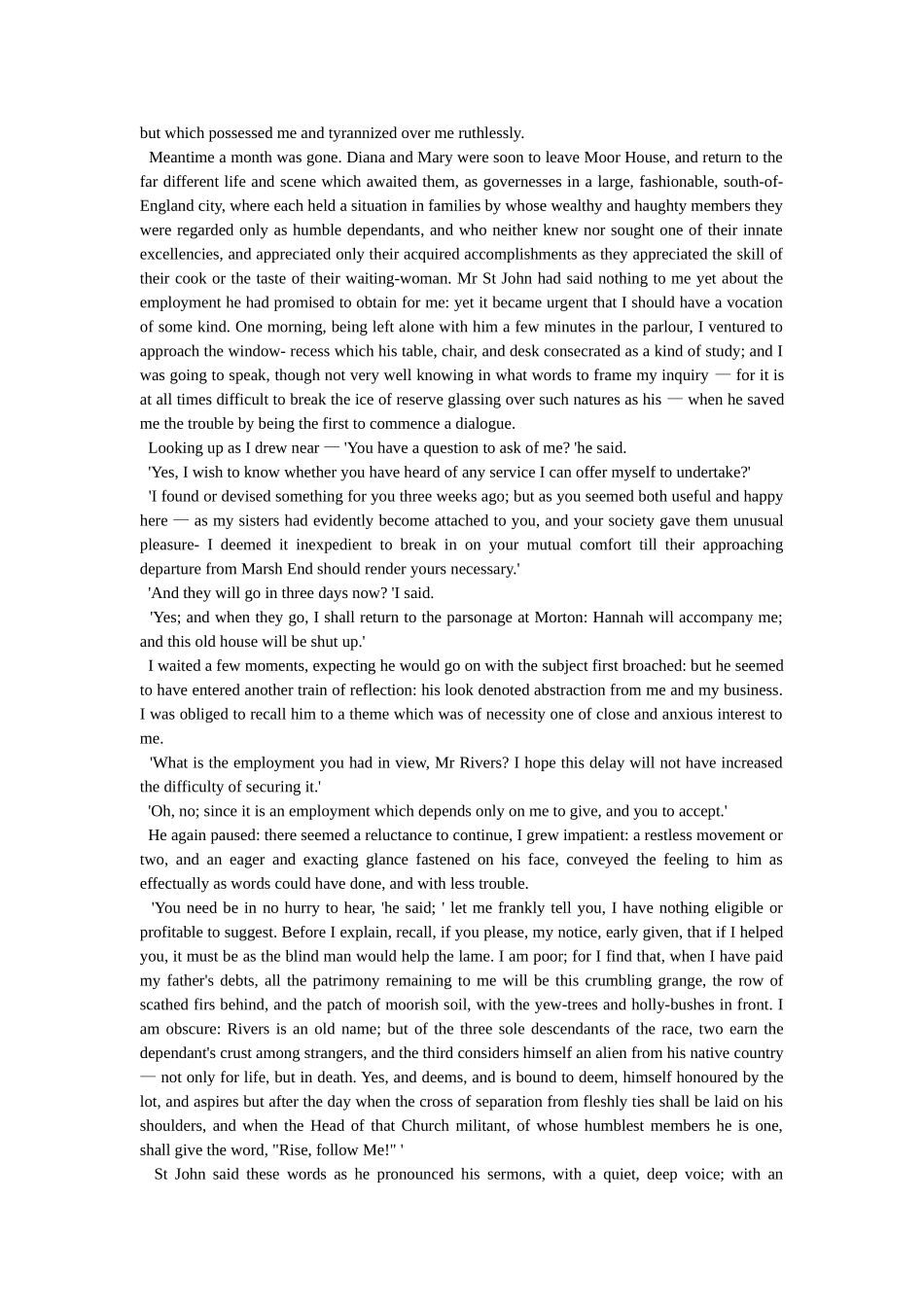Chapter 30 THE more I knew of the inmates of Moor House, the better I liked them. In a few days I had so far recovered my health that I could sit up all day, and walk out sometimes. I could join with Diana and Mary in all their occupations, converse with them as much as they wished, and aid them when and where they would allow me. There was a reviving pleasure in this intercourse, of a kind now tasted by me for the first time — the pleasure arising from perfect congeniality of tastes, sentiments, and principles. I liked to read what they liked to read: what they enjoyed, delighted me; what they approved I reverenced. They loved their sequestered home. I, too, in the gray, small, antique structure — with its low roof, its latticed casements, its mouldering walls, its avenue of aged firs, all grown aslant under the stress of mountain winds; its garden, dark with yew and holly, and where no flowers but of the hardiest species would bloom — found a charm both potent and permanent. They clung to the purple moors behind and around their dwelling — to the hollow vale into which the pebbly bridle-path leading from their gate descended, and which wound between fern-banks first, and then amongst a few of the wildest little pasture-fields that ever bordered a wilderness of heath, or gave sustenance to a flock of gray moorland sheep, with their little mossy-faced lambs — they clung to this scene, I say, with a perfect enthusiasm of attachment. I could comprehend the feeling, and share both its strength and truth. I saw the fascination of the locality. I felt the consecration of its loneliness: my eye feasted on the outline of swell and sweep — on the wild colouring communic...


